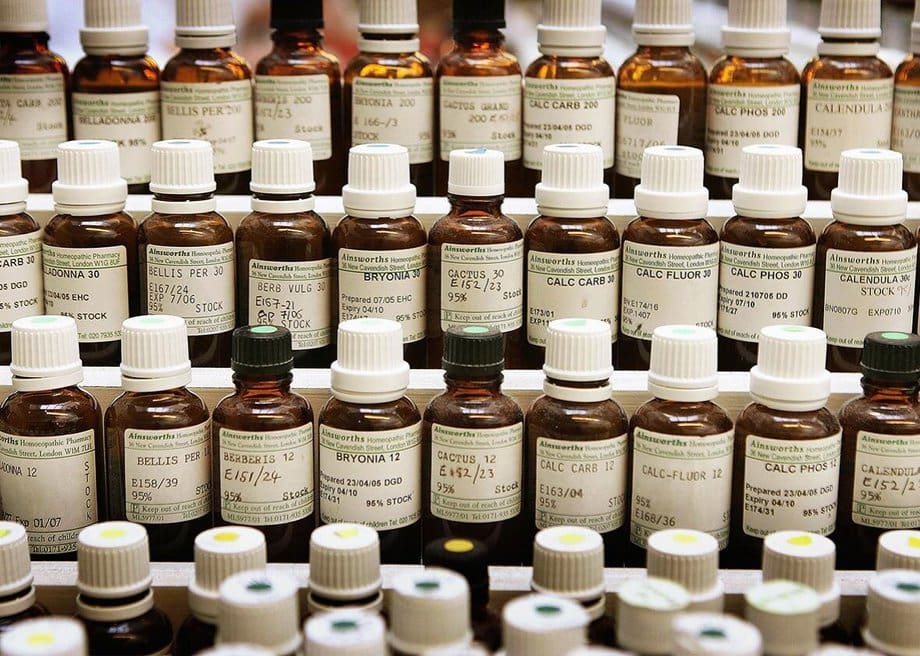Why Is Homeopathy Regulated Differently In Various Countries?

Homeopathy, a system of alternative medicine that originated in the late 18th century, is subject to varying regulatory frameworks across countries worldwide. This article aims to explore the reasons behind the differences in homeopathy regulation and shed light on the complexities surrounding this issue.
By examining the historical background of homeopathy, the influence of cultural and political factors, as well as the differences in perception and acceptance of this practice, we can gain insight into the diverse approaches taken by different nations. Furthermore, safety concerns and the lack of scientific evidence have also played a significant role in shaping homeopathy regulation.
Considering the impact on public health and consumer choice, this article will discuss the role of professional organizations and licensing boards in guiding regulatory decisions. Additionally, international efforts for standardization and harmonization will be examined, along with future prospects and challenges in homeopathy regulation.
Key Takeaways
- Homeopathy is subject to varying regulatory frameworks across different countries worldwide.
- The regulation of homeopathy is influenced by factors such as historical and cultural background, public demand, and perception and acceptance of homeopathy.
- Stricter regulations focus on safety, efficacy, and quality control, while less stringent regulations may allow for the sale of potentially harmful products.
- Variations in regulation can lead to inconsistent quality control and impact public health and consumer choice.
Historical Background of Homeopathy
The historical background of homeopathy provides insights into the factors contributing to the varied regulations of homeopathy across different countries.
Homeopathy was developed in the late 18th century by Samuel Hahnemann, a German physician. It was based on the principle of ‘like cures like,’ which suggested that substances causing symptoms in healthy individuals could be used to treat similar symptoms in sick individuals.
Homeopathy gained popularity in Europe and the United States during the 19th century, with the establishment of homeopathic hospitals and medical schools. However, as conventional medicine advanced, homeopathy faced criticism from the scientific community due to its lack of scientific evidence and reliance on dilutions.
This led to varying degrees of regulation in different countries, with some recognizing homeopathy as a valid medical practice, while others adopted stricter regulations or outright bans.
Varied Regulatory Frameworks across Nations
This paragraph discusses the varied regulatory frameworks across nations in relation to homeopathy.
Some countries have implemented strict regulations for homeopathic practices, while others lack any specific regulations.
The difference in regulatory approaches can be attributed to various factors such as cultural beliefs, historical background, and the perception of homeopathy within each country.
Strict Regulations in Some Countries
Strict regulations on homeopathy in some countries are attributed to concerns about the lack of scientific evidence supporting its efficacy and safety. These countries view homeopathy as an alternative form of medicine that lacks a scientific basis.
For example, in Australia, the Therapeutic Goods Administration (TGA) regulates homeopathic products as medicines and requires them to meet certain safety, quality, and efficacy standards. The TGA requires homeopathic products to undergo pre-market assessment and be registered on the Australian Register of Therapeutic Goods.
Similarly, in Germany, homeopathic medicines are subject to the regulations set by the Federal Institute for Drugs and Medical Devices (BfArM). The BfArM requires homeopathic medicines to meet the same standards as conventional medicines, including safety, quality, and efficacy.
These strict regulations aim to protect consumers from potentially ineffective or unsafe homeopathic products.
Lack of Regulations in Others
In contrast to countries with strict regulations, some nations have adopted a more lenient approach towards the regulation of homeopathic products, leaving room for potential concerns regarding their efficacy and safety. This lack of regulations is primarily due to the following reasons:
- Limited scientific evidence: The lack of robust scientific evidence supporting the efficacy of homeopathy has led some countries to prioritize other healthcare interventions that have been proven effective through rigorous research.
- Historical and cultural factors: Homeopathy has deep historical roots in certain countries, leading to a more accepting attitude towards its practice and products. These countries may consider homeopathy as part of their traditional medicine systems, which influences their regulatory approach.
- Economic considerations: Some nations may view homeopathy as a lucrative industry, generating significant revenue through the sale of homeopathic products. This economic factor can influence the level of regulation imposed on the industry.
- Public demand and perception: In countries where there is a strong public demand for homeopathic treatments, regulators may be hesitant to impose strict regulations for fear of backlash or alienating a significant portion of the population who believe in the efficacy of homeopathy.
Overall, the lack of regulations in some countries regarding homeopathic products raises concerns about their safety, efficacy, and the potential for misinformation.
Influence of Cultural and Political Factors
Cultural and political factors play a significant role in shaping the varying regulatory approaches to homeopathy across different countries.
In some countries, cultural beliefs and traditions heavily influence the acceptance and regulation of homeopathy. For example, in India and Germany, where homeopathy has deep historical roots and is widely practiced, there is a greater acceptance and integration of homeopathic treatments into the healthcare system.
Conversely, in countries where the dominant medical paradigm is more skeptical of alternative therapies, such as the United States and the United Kingdom, homeopathy faces more stringent regulations.
Additionally, political factors, such as lobbying efforts by pharmaceutical companies or pressure from medical associations, can influence the regulatory landscape.
Ultimately, the differing cultural and political contexts shape the way homeopathy is regulated in various countries.
Differences in Perception and Acceptance of Homeopathy
One key aspect of the perception and acceptance of homeopathy lies in the differing attitudes and beliefs towards alternative medicine practices within different healthcare systems.
Homeopathy is a form of alternative medicine that relies on the principle of ‘like cures like’ and uses highly diluted substances to stimulate the body’s natural healing process. Its effectiveness and scientific basis have been a subject of debate within the medical community.
In countries where homeopathy is more widely accepted, such as Germany and India, it is regulated differently compared to countries where it is less accepted, such as the United States and Australia.
This variation in regulation can be attributed to factors such as the influence of pharmaceutical companies, cultural beliefs, and the degree of integration of alternative medicine within the healthcare system.
Safety Concerns and Lack of Scientific Evidence
While the perception and acceptance of homeopathy may vary across countries, one common concern that influences the regulation of homeopathy is the issue of safety and the lack of scientific evidence supporting its efficacy. Critics argue that homeopathic remedies, which are often highly diluted, may not contain any active ingredients and therefore cannot have any therapeutic effect.
Furthermore, the principles of homeopathy, such as the Law of Similars and the concept of vital force, are not supported by scientific theories or evidence. As a result, regulatory bodies in some countries have taken a more cautious approach towards homeopathy, imposing stricter regulations and requiring manufacturers to provide scientific evidence of safety and efficacy.
These concerns and regulatory differences contribute to the varying levels of regulation seen across different countries.
Impact on Public Health and Consumer Choice
The impact of differing regulatory approaches on homeopathic products can have significant implications for public health and the choices available to consumers. In countries where homeopathy is regulated more strictly, such as Germany, France, and Italy, the emphasis is on ensuring safety, efficacy, and quality control. This includes requiring homeopathic products to undergo rigorous testing and adhere to specific manufacturing standards. On the other hand, countries with less stringent regulations, such as the United States, Canada, and India, may allow for the sale of homeopathic products without requiring proof of efficacy or safety. This variation in regulation can lead to inconsistent quality control and potentially harmful products reaching the market. The table below illustrates some of the key differences in regulatory approaches across countries:
| Regulatory Approach | Strict | Less Strict |
|---|---|---|
| Testing Requirements | Rigorous testing required | No requirement for efficacy testing |
| Manufacturing Standards | Specific standards enforced | No specific standards enforced |
| Labeling Requirements | Detailed labeling required | Minimal labeling requirements |
| Consumer Access | Limited availability | Widespread availability |
The differences in regulatory approaches can impact public health by influencing the safety and effectiveness of homeopathic products. Consumers may also face challenges in making informed choices due to inconsistent labeling requirements and lack of reliable information on product efficacy.
Role of Professional Organizations and Licensing Boards
Professional organizations and licensing boards play a crucial role in ensuring standardized practices and promoting accountability within the field of homeopathy. These organizations typically establish guidelines and codes of conduct that practitioners must adhere to in order to maintain their membership or licensure.
They may also offer continuing education opportunities to ensure that practitioners stay up-to-date with the latest research and developments in the field. Additionally, professional organizations and licensing boards often serve as a resource for consumers, providing information about qualified practitioners and addressing any concerns or complaints that may arise.
By setting standards and providing oversight, these organizations help to safeguard public health and enhance consumer confidence in the practice of homeopathy.
International Efforts for Standardization and Harmonization
Standardization and harmonization efforts at the international level aim to establish consistent practices and guidelines across different jurisdictions, fostering global collaboration and ensuring the highest level of quality and safety in the practice of homeopathy. These efforts involve the collaboration of various stakeholders, including professional organizations, regulatory bodies, and governments. One of the key initiatives in this regard is the International Council for Homeopathy (ICH), which brings together homeopathic organizations from different countries to promote the development of standards and best practices. The ICH works towards harmonizing the education and training requirements for homeopaths, as well as the ethical and professional standards they should adhere to. Additionally, the World Health Organization (WHO) plays a crucial role in the standardization of homeopathic medicines, through the development of guidelines for their quality, safety, and efficacy. Such international efforts for standardization and harmonization are essential to ensure the credibility and reliability of homeopathy as a healthcare practice.
| Organization | Objective | |||
|---|---|---|---|---|
| International Council for Homeopathy (ICH) | To promote the development of standards and best practices in homeopathy | |||
| World Health Organization (WHO) | To develop guidelines for the quality, safety, and efficacy of homeopathic medicines | |||
| Professional organizations | To harmonize education and training requirements for homeopaths | |||
| Regulatory bodies | To establish ethical and professional standards for homeopathy practice | Regulatory bodies | To establish ethical and professional standards for homeopathy practice and ensure compliance with these standards through licensing and disciplinary actions. |
Future Prospects and Challenges in Homeopathy Regulation
In the previous subtopic, we explored international efforts towards standardization and harmonization of homeopathy regulation. Now, we turn our attention to future prospects and challenges in this field. The regulation of homeopathy continues to be a topic of debate and discussion, with several key factors influencing its future trajectory. Here are three important aspects to consider:
- Scientific research: The availability of robust scientific evidence supporting the efficacy of homeopathic treatments is crucial for regulatory decision-making. Future prospects depend on continued research to establish the effectiveness and safety of homeopathic remedies.
- Public opinion and demand: The acceptance and demand for homeopathy vary across different countries. The future of regulation will likely be shaped by the attitudes and preferences of the public towards homeopathic treatments.
- Political and regulatory frameworks: The approach of governments and regulatory bodies towards alternative medicine, including homeopathy, greatly affects its regulation. The future of homeopathy regulation will depend on the evolving political and regulatory landscapes in different countries, which may lead to either stricter or more lenient regulations.
Considering these factors, the future prospects and challenges in homeopathy regulation remain complex and multifaceted.
Frequently Asked Questions
What is the current legal status of homeopathy in different countries?
The legal status of homeopathy varies across countries. Some countries, such as India and Germany, have recognized and regulated it as a form of alternative medicine, while others, like the United States and Australia, have limited or no regulatory frameworks in place.
Are there any global organizations overseeing homeopathy regulation?
Several global organizations oversee homeopathy regulation, including the World Health Organization (WHO), the European Committee for Homeopathy (ECH), and the Homeopathic Pharmacopoeia Convention of the United States (HPCUS). These organizations aim to establish standards and guidelines for the practice and regulation of homeopathy worldwide.
How do cultural and political factors affect the regulation of homeopathy?
Cultural and political factors have a significant impact on the regulation of homeopathy. These factors influence the level of acceptance, public demand, and government policies towards homeopathy, leading to variations in regulations across different countries.
Are there any safety concerns specific to homeopathic treatments?
Safety concerns specific to homeopathic treatments include lack of scientific evidence for their efficacy, potential for harmful interactions with conventional medications, and risks associated with the use of highly diluted substances.
What are the challenges faced in standardizing and harmonizing homeopathy regulation internationally?
The challenges faced in standardizing and harmonizing homeopathy regulation internationally include differences in cultural attitudes towards homeopathy, varying levels of scientific evidence, and the influence of local regulatory bodies and stakeholders.








